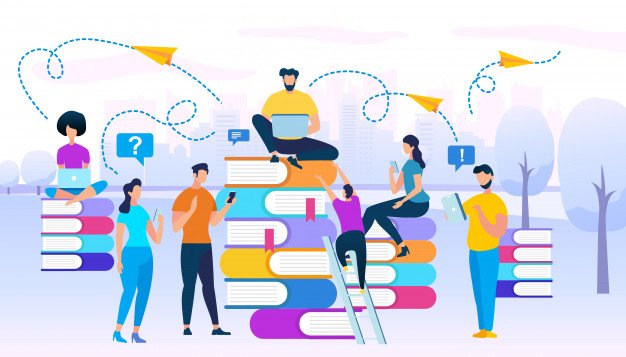Since its inception, online education has been growing faster and faster. While the benefits of receiving an education in person are obvious, what reason do thousands of students have for getting degrees online? Teaches Aid Training Adapt Education put together this list of seven reasons why online education is so very popular.
7 Reasons why Online Education is Very Popular:
Flexible Scheduling:
Regardless of a student’s age, flexible scheduling is a huge factor in seeking education online. Since students are not expected to attend class in person, coursework can be done while the kids are at school, during breaks at work, on the weekends, or whenever coursework is convenient. This allows students who work full time to advance their education in their free time without struggling to cram classes into a work week. It is also great for parents who balance their own schedule with the schedules their children keep. Students who find that they have a difficult time making it to classes can also benefit from a more freeform schedule, taking assignments and lessons at any hour of the day that is convenient.
Affordability:
Many online programs also offer a much more affordable alternative to traditional “brick and mortar” institutions. Online colleges only need to pay for instructors, software, and support staff rather than spending money on maintaining buildings and internal technology like computers and printers. This cost reduction is passed on to the student in the form of reduced tuition.
Indirect costs to the student such as transportation and room and board in a dorm are also reduced. According to My College Board students at a traditional university can expect to pay an average of $10,089 (USD) to live on campus. This also means a lower initial investment for students who are considering changing fields or just want to take classes to expand their knowledge of a subject. Many students change degree programs after taking a few classes, and online education makes for a financially lower risk way to try out a topic before committing.
A Variety of Topics and Modes:
Often, students will visit a nearby educational institution and be disappointed by the degrees or topics offered. An added benefit of online classes is that students have a world of choices and opportunities at their fingertips. If a specific topic is not available at one institution, the student can find another from a myriad of online degree programs. Just about any class, a student might want is available online through some college or another. Because the educational institution does not have to bother with physical facilities, it is also much easier to offer a wider variety of topics for students to study. Schools can draft professionals from all over the world to teach classes as well, without having to convince them to relocate.
The formats of the classes are also highly varied, with classes that are completely self-paced and automated, or with weekly assignments. Some faculty also offer video chat consultations and discussions for students who benefit from live interaction, which leads to the next benefit.
Adaptability to a Students Personality:
Not all students thrive in the environment of a classroom. For students who are particularly shy, an online environment may seem more comfortable. Many online classes are structured so that students interact with one another mainly through discussion boards rather than meeting face to face. Those who are more outgoing are also thrilled by the premise of making acquaintances and friends from far away, especially if their educational alternative is in a small town nearby where they may already know many of their classmates.
Improving Technology:
In the early days of online education, many thought it was more of a hat trick than an effective learning tool. These days, everyone knows that online education comprises a huge portion of the degrees offered around the world. Improving technology has largely facilitated this change. Thanks to the increased availability of high-speed internet, better computers, online archives and catalogs, and learning management systems, online learning has become incredibly easy to use. Many online classes also have excellent accessibility for students who have disabilities thanks to improved and widespread technology. This progress is not stopping any time soon either, and each year educators improve their online curriculum and pick up new pedagogical tips on making use of the great tech most people have at home.
Pacing:
In traditional education, the plan for a students coursework follows a traditional path. Each student takes a certain number of classes each semester and moves on. If the student fails at a topic, the course has to be repeated causing delays that can be costly for them. Since online coursework can be done whenever a student likes, there is less pressure to rush through difficult topics. If a student knows that he or she struggles with a topic or needs extra time due to a learning disability or other problem, they can opt for completely self-paced classes with no set start or end date. This removes the pressure to pass with a minimum grade and instead promotes deep learning of topics.
Building Discipline:
While students who meet weekly in person are constantly reminded of deadlines and assignments, online students are usually expected to be more self-sufficient. Although online classes typically have a system of reminders, there is no assigned time for students to work. This means that students become self-disciplined and are very motivated learners. According to this list by the University of Minnesota Mankato, self-motivation and time management are requirements of online learners. When looking for job opportunities after completing their education, these traits are highly valued in almost every field. Regardless of the subject studied, online education inherently comes packaged with relevant job skills.
Conclusion:
While each student has his or her own reason for seeking education online, these seven reasons are a great start. If you are still interested in what online education has to offer, take a look at the programs offered by Adapt Education.
Read Also:
























